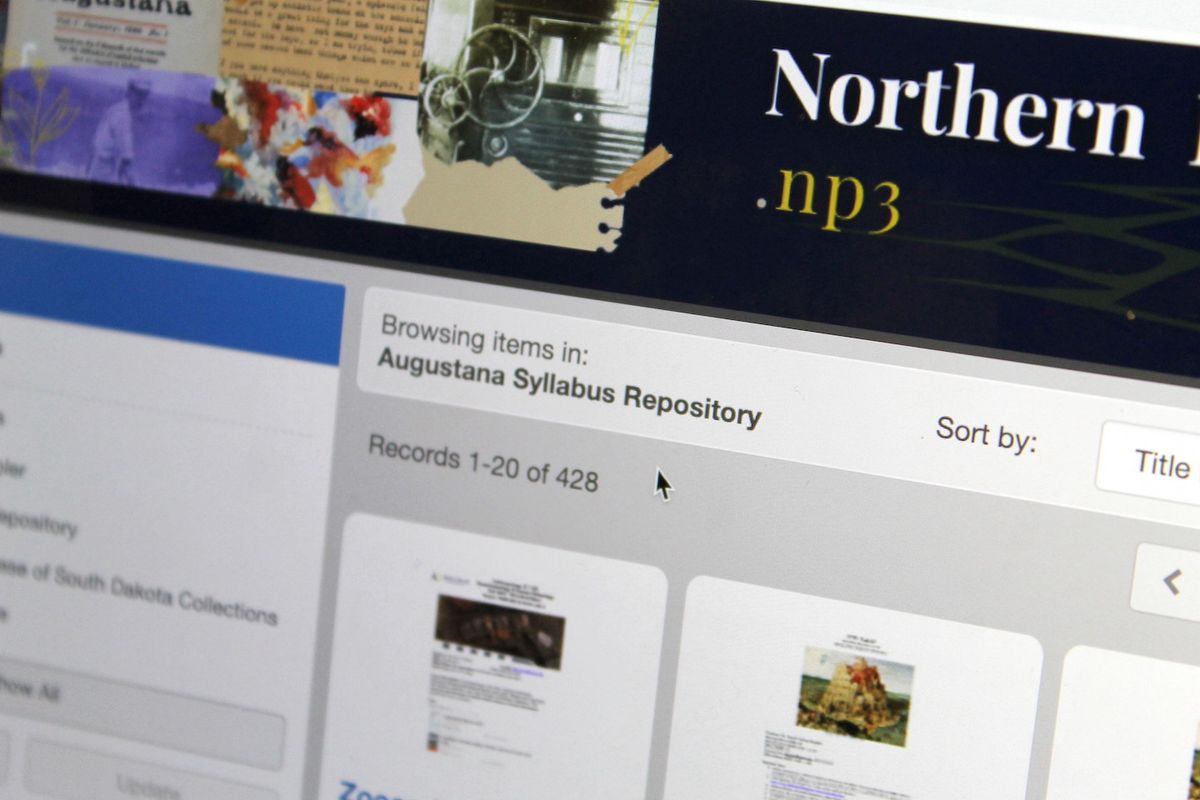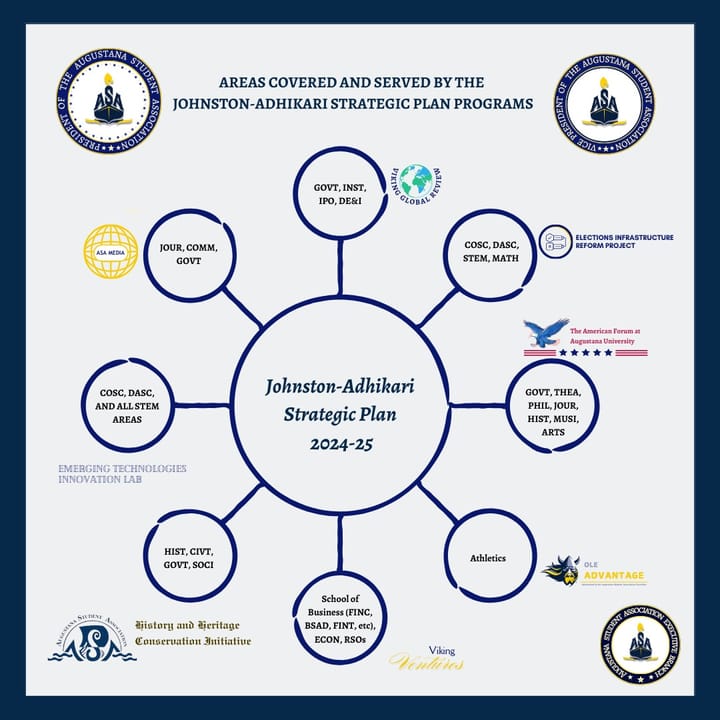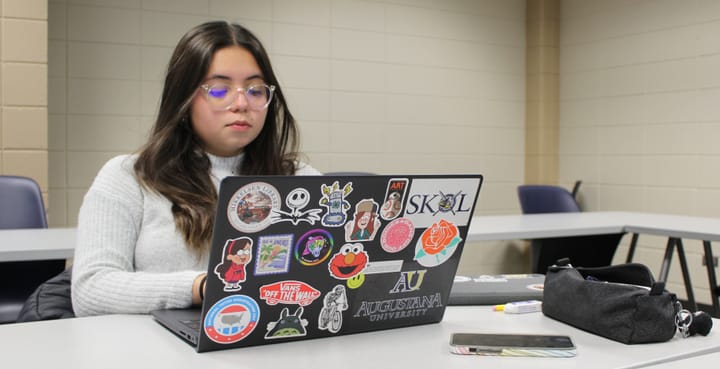Students and professors have access to new syllabus database

Augustana recently introduced a new tool to help students register and prepare for their classes.
The syllabus repository, introduced last December, is an online database containing syllabi of classes taught by participating professors. Students can see syllabi with previous assignments, projects and workloads to get a sense for the class and whether it would fit well in their semester plans.
Jay Kahl, assistant vice provost for assessment and academic excellence, helped lead the creation of the syllabus archive after students brought the idea to the curriculum council. Acting as “project manager,” he enjoyed taking on a project with no precedent at Augustana.
“I like projects without precedent sometimes as they mean we all get to learn a new process and learn how to improve it,” Kahl said.
Uploading to the repository is optional, but over 70 professors have at least one of their syllabi on there. There are currently 428 syllabi uploaded.
Beth Boyens, a professor in the English department, has all of her syllabi on the repository. Boyens said she chose to upload them because students asked for the creation of the database.
“The student voice is important, and if students are saying this would be helpful to them, I want to try to help them out,” Boyens said.
Boyens also said she can see why other professors may choose not to upload them. She said she hopes the syllabus repository does not discourage students from going to professors to speak about their courses face-to-face.
President Stephanie Herseth Sandlin shared similar concerns from faculty. In an interview this January, she said though faculty were receptive to student wishes, some were concerned that the repository would inhibit discussion.
“They don’t want students looking at a packed syllabus and making the decision not to enroll based on that,” Herseth Sandlin said. “They want to have the opportunity to answer questions in person.”
Kahl said although he sees professor concern, he finds value in uploading syllabi because professor and student schedules may not always align for them to meet up. If time does allow for them to meet, the repository “opens the door” for discussion to occur.
“I certainly hear my colleagues’ sentiments about whether students could potentially avoid a helpful discussion about the class, its outcomes and schedule if they choose to view the syllabus and not speak directly to the faculty member,” Kahl said. “I would simply say that the benefits of making the syllabus accessible outweigh those concerns in my mind.”
Sophomore Rachel Schwarz said she’s excited about the syllabus repository and will use it to register for classes and even prepare for classes before they start.
“I think it’s a great idea because it helps students know what to expect out of a class and out of a professor,” Schwarz said.
Both Kahl and Herseth Sandlin are looking forward to seeing the syllabus repository as it evolves.
“I think now it’s the experience,” Herseth Sandlin said. “How will it be utilized by the students and how to track that, hoping that it leads to more discussions with faculty and advisors.”



